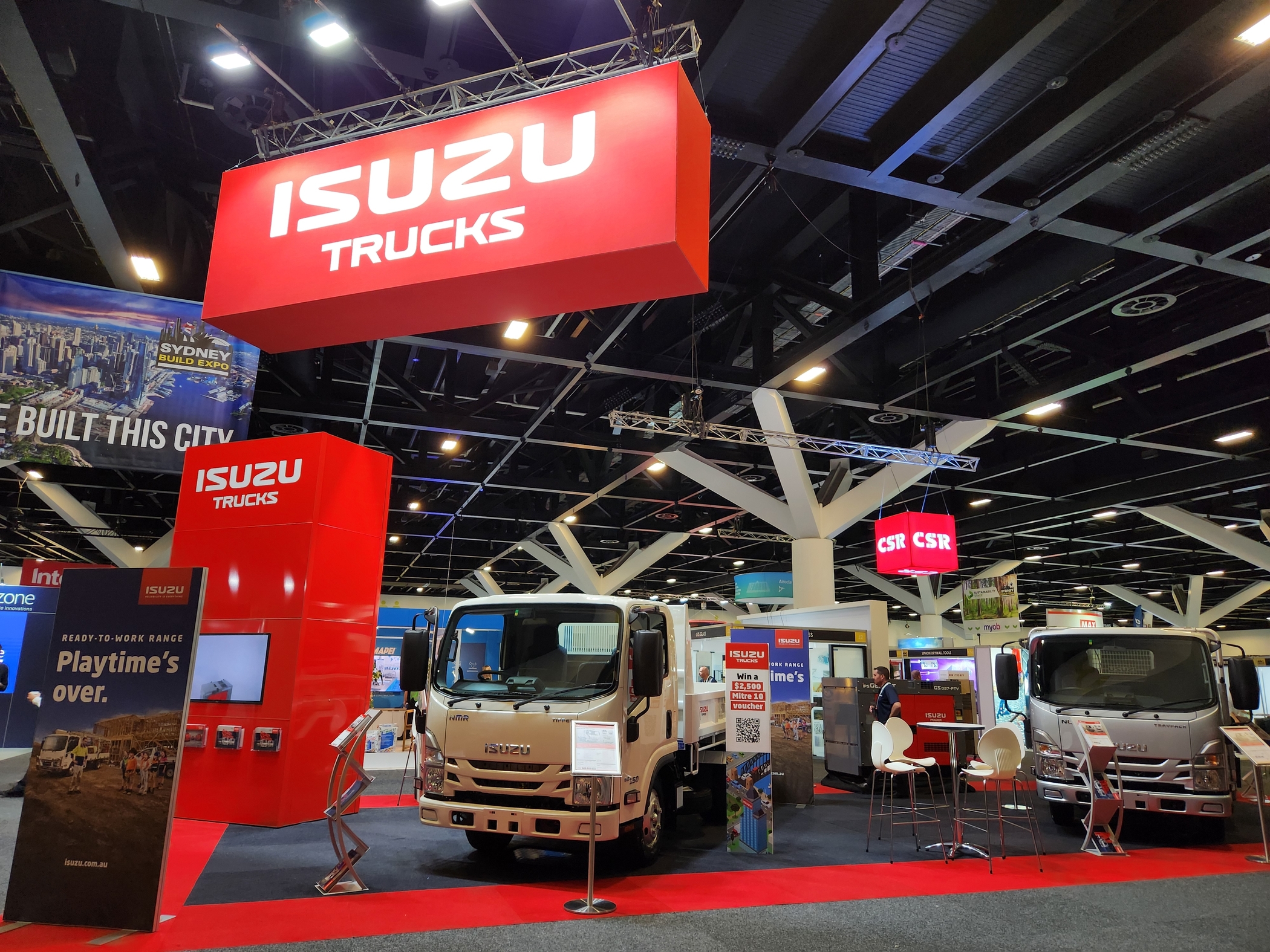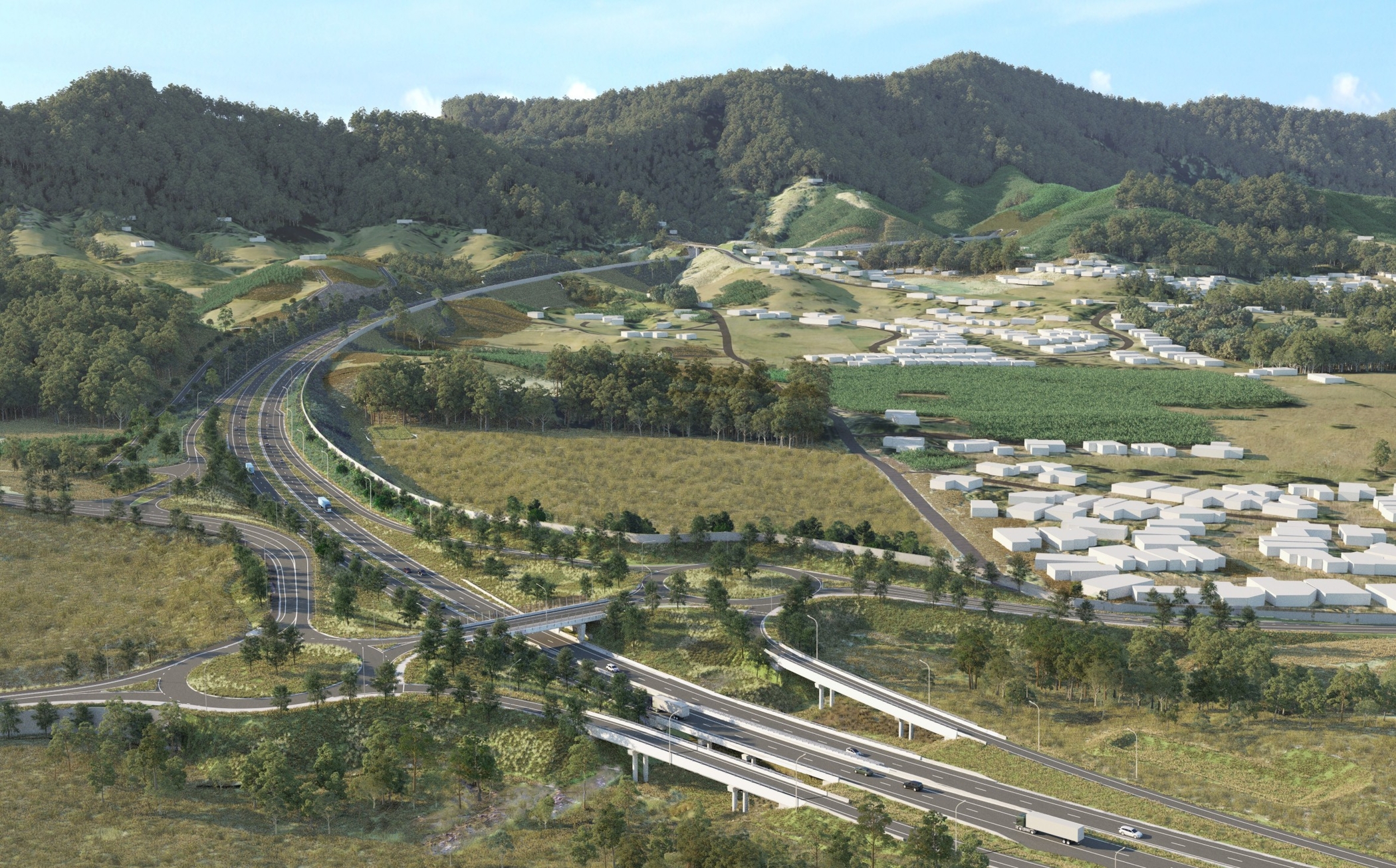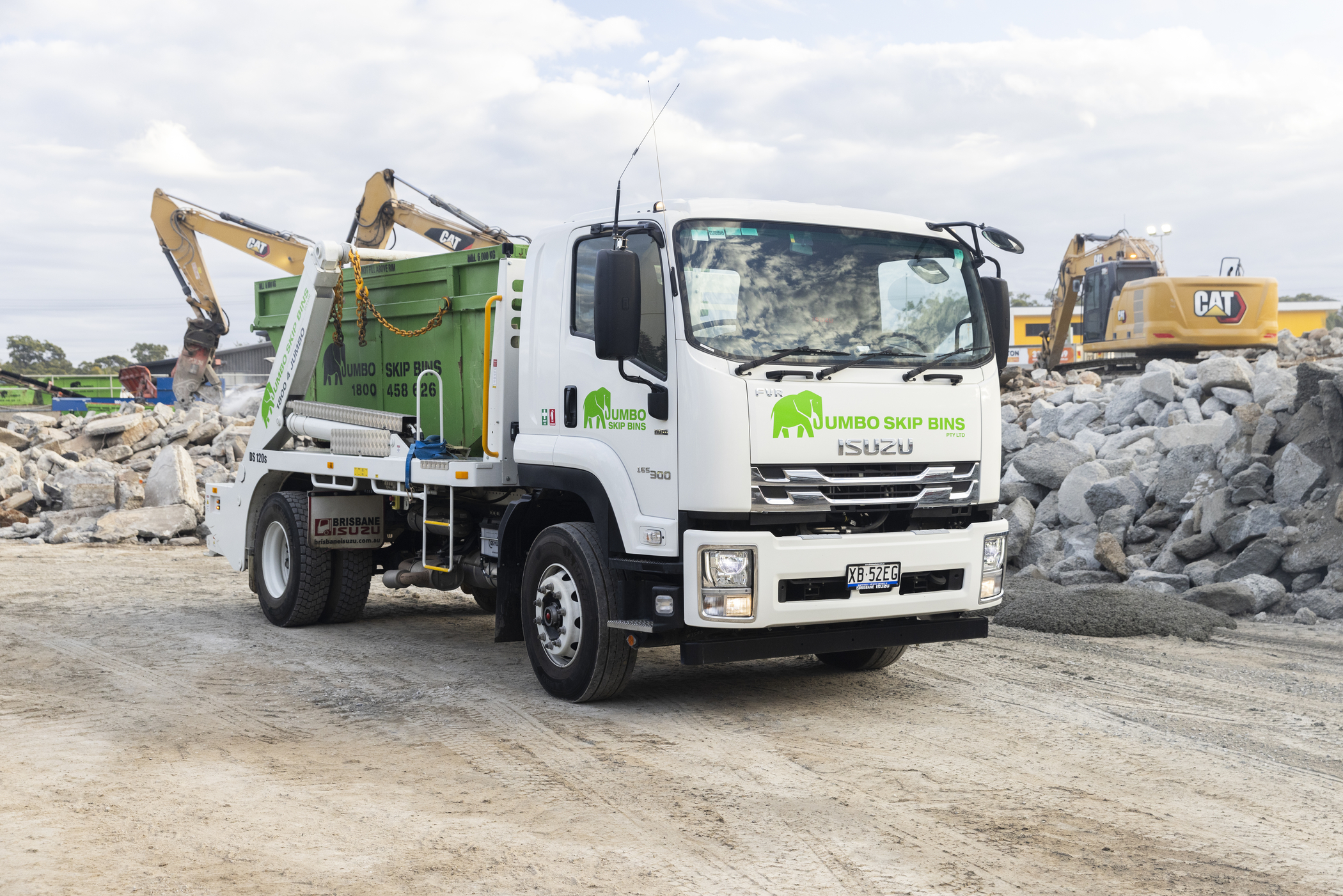Q & A: WHAT MAKES AN AUSTRALIAN TRUCK DRIVER OF THE YEAR?
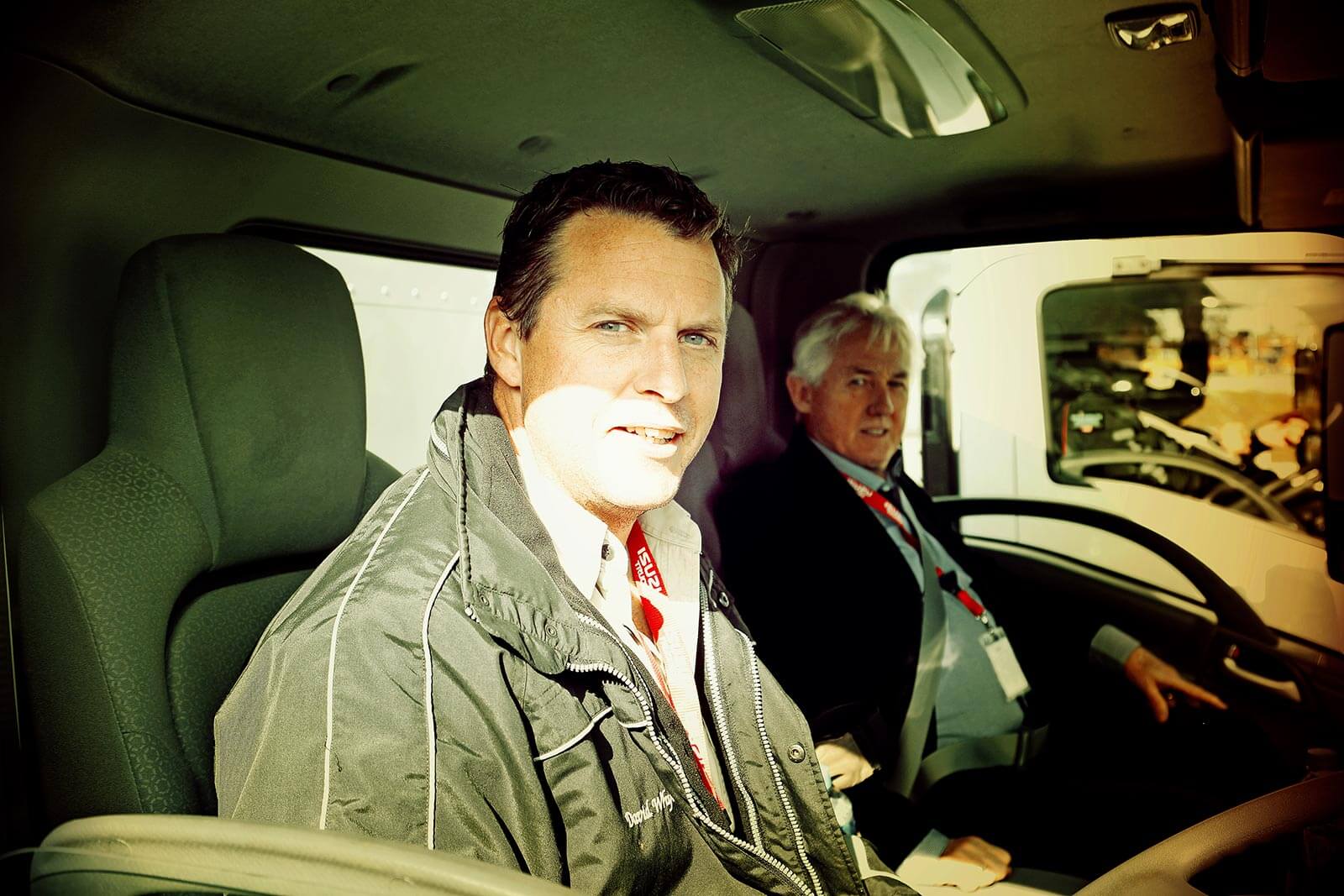
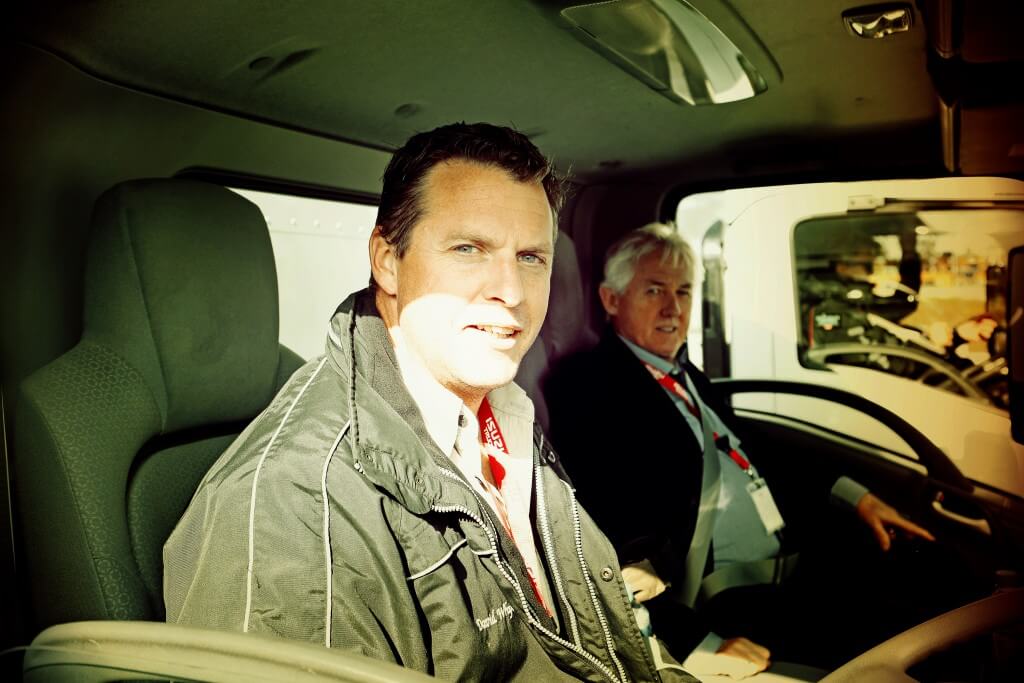 Dave Whyte knows trucking better than most. After being named Australian Young Truck Driver of the Year in 2007 – and winning his own truck – he started Whyte’s Transport and spent almost 10 years travelling the country as an owner-driver. He’s recently moved his main gig off-road, working as a respected industry journalist called upon by manufacturers like Isuzu to test drive new truck models. We sat down with Dave to talk about what lies ahead for the industry he knows and loves so well.
Dave Whyte knows trucking better than most. After being named Australian Young Truck Driver of the Year in 2007 – and winning his own truck – he started Whyte’s Transport and spent almost 10 years travelling the country as an owner-driver. He’s recently moved his main gig off-road, working as a respected industry journalist called upon by manufacturers like Isuzu to test drive new truck models. We sat down with Dave to talk about what lies ahead for the industry he knows and loves so well.
How did you get involved in trucking, and what attracted you to the job?
My dad was a truck driver, and I had four sisters and no brothers, so I spent most of my summers in the truck with my old man. I grew up around trucks and I think that’s how most people get into it now. They grow to love it and then end up working in the industry.
Tell us about how you came to win the first young truck driver of the year?
I was 27 at the time and working for a company doing runs between Melbourne and Adelaide. I saw the ad and I thought it would be a bit of fun, and a way to see where I sat among other drivers in the industry. I didn't go into it trying to win it – I just thought it would be fun and good PR for drivers.
What did winning the competition mean for you back then?
Obviously I was stoked, but what really changed was winning the truck. It took me from a company driver where my responsibility was to get in the truck, do my work and go home at the end of the day, to being a business owner. The responsibilities of an owner-driver far outweigh being a company driver. I became a driver, PR and marketing coordinator, a debt collector and a whole load of other stuff that comes with having your own business.
What are the biggest changes you have noticed in the industry since you started out?
In the trucks, it’s the technology – things like AMT and cruise control and all the new additions that take pressure off the driver. Aside from equipment, the industry has changed a lot. Once upon a time rogue operators who bend the rules were held up as the heroes of the industry, and now the industry is looking to get rid of them. I think enforcement has changed hugely since I started, safety cameras and things like that were only being rolled out, and now you can’t go anywhere without thinking about them. The workload hasn't changed but the way we do the job has, we have to be a lot smarter about how we work now.
What are your thoughts on the driver shortage facing Australia?
There’s a few factors involved in the shortages. A key issue is the fact that a lot of companies won’t take on drivers under 25 with less than two years’ experience. By the time you’re 25 you want to be setting yourself up in life not just starting your career. Most people who want to drive trucks don’t go to university, so when you’re 18 you don’t want to wait around seven years to become a truck driver. The other thing we battle is image; it’s not a sexy job, and we’re not highly regarded by the public. The lifestyle isn't overly beneficial and time away from home means you don’t have that much of a social life, it’s more a lifestyle than a job and it’s not appealing to a lot of people.
What could be done to make the job more attractive to younger candidates?
I think an image overhaul would be a good way to start, whereby we promote a bit more of what the industry does, different directions you can take your career. Driving trucks is not just sitting in a truck all day, there’s a whole raft of industries that rely on transport. I think the main thing is getting kids interested in trucks. A few years ago I did a stint with the Australian Trucking Association's safety truck and took it around to primary schools and explained the role of industry. If we make truck driving look more appealing, people will be more interested in a career in transport.
What is the best aspect of having a career as a driver?
I get to see the country and I get paid for it, that’s a great aspect. I've done so many interesting things that come under the role of truck driver. The best thing I've taken out of this job is the friendship with other drivers, it’s such a motley bunch of people of all different races, religions and family backgrounds. When you’re out there on the road, you’re just another one of the boys, I think the world could learn a thing or two from us.
How have you seen trucks and technology developed since you started out in the industry?
I think as far as safety technology goes, it’s come along in leaps and bounds. When I started, trucks had seat-belts but people didn't wear them. ABS was something on a luxury car, and now it’s a standard. Emergency brake, adaptive cruise control, all these safety aspects have come a long way. The driver environment has changed, trucks used to be huge agricultural machines, noisy, rough and physically hard on your body, now they are quiet and comfortable and a good place to spend a day.
What do you think is the biggest challenge facing drivers today?
I think its time pressure. Now days everyone wants everything delivered yesterday. There is also the issue of being away from your family for one or two weeks at a time.
Tell us about Whyte’s Transport
We started in 2007 when I won the competition, doing mainly sub-contract work. After almost 10 years, the financial pressure and time away from my family got the better of me, so we sold it a couple of weeks ago and now I’m concentrating on being a full-time transport journalist.
What are the biggest challenges you face running your own business?
The main challenge I found as an owner driver is work-life balance, obviously there are financial challenges too. Sometimes you make the choice between putting fuel in your truck and taking your family out on the weekend.
What is one piece of advice you’d offer someone starting out in the trucking industry?
Find the work before you buy the truck and make sure the work is long-term and going to be paid for. You can drive past any auction yard and it’ll be full of new trucks, traded in by some young guys with initiative that tried it and didn’t make it. My advice would be, be prepared to not have a regular income for the first two or three months while you’re finding your feet.
How did you keep your trucks in good working order?
I’m a big believer in servicing by the manufacturer’s dealership. They have the parts, the people that know what they’re doing; and generally they can get stuff done easily and at a competitive price. We knew our belief in dealership servicing had been justified when we took our truck in for servicing at 805,000 km. After all that distance, it had only had a chip in the windscreen and needed new wiper blades and a number plate light.
What do you think makes a good truck driver?
I think its attitude, and it’s the same for every job. If you have the right attitude you’re basically going to be all right. Drivers are such a mix of people. It doesn't matter where you come from or what language you speak, if you’ve got the right attitude you’ll do a really good job.
Tell us about your role in the Australian trucking media?
When I won Young Truck Driver in 2007 I wrote a column for industry papers, and it grew from there - an occasional road test on new equipment, product launches and stuff like that. Five years ago I started writing for Power Torque magazine, and I had to make a choice between being a driver or a journalist. I couldn’t do both given all the factors involved with running your own transport business. The journalist side won out. I can be at home and pay my bills, but also stay involved in the industry that I love.
What do you enjoy most about your job?
I really enjoy testing the new products; I’m like a kid in a toy shop. For me the people in the industry make it so enjoyable. They eat sleep and breathe transport, and that makes it worthwhile.
What challenges do you think the industry has ahead of it?
The driver shortage is a big one, but it all comes back to the public image of the transport industry. It’s hard for us to get the approval to move more freight with fewer drivers. Given the negative public opinion, people are hesitant to put heavier trucks on the road. If we can improve our image, it will attract more people to the industry and the public will trust us to move more freight.
What technology developments do you think lie on the horizon for the trucking industry?
I think for driverless trucks to work here outside of major cities, there needs to be big infrastructure work. I’ve been in an autonomous truck and seen how they work, but we need to have all cars and trucks talking to each other before it can take off. It’s a long way away, maybe another 20 or 30 years before we see it here. It’ll happen eventually, we don’t have people lining up to drive trucks any more so something has to change, but it’s a long way off for now. Check out Dave Whyte in action as trucking wordsmith for Power Torque magazine, in this 2015 write-up on the superior safety features of the Isuzu N Series.
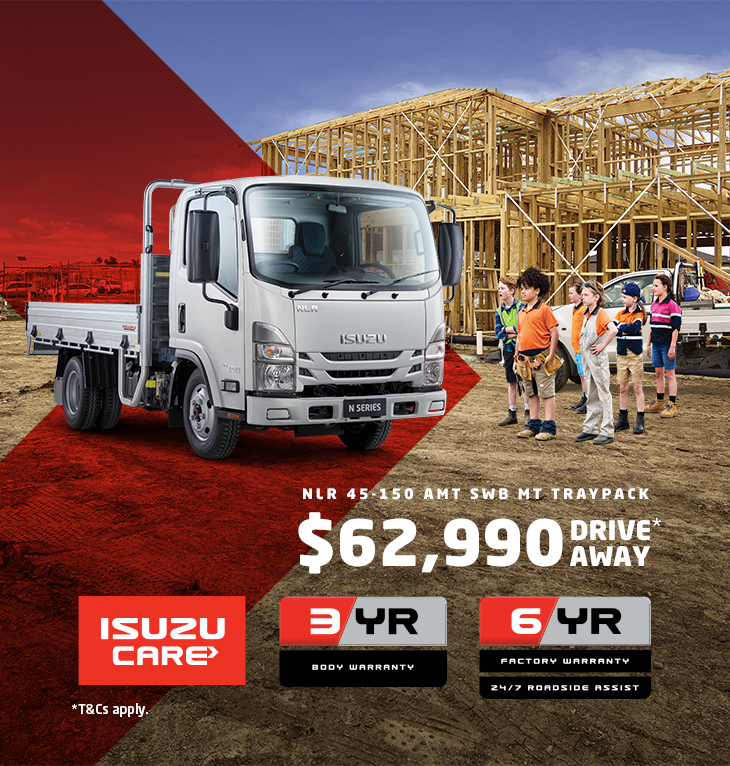
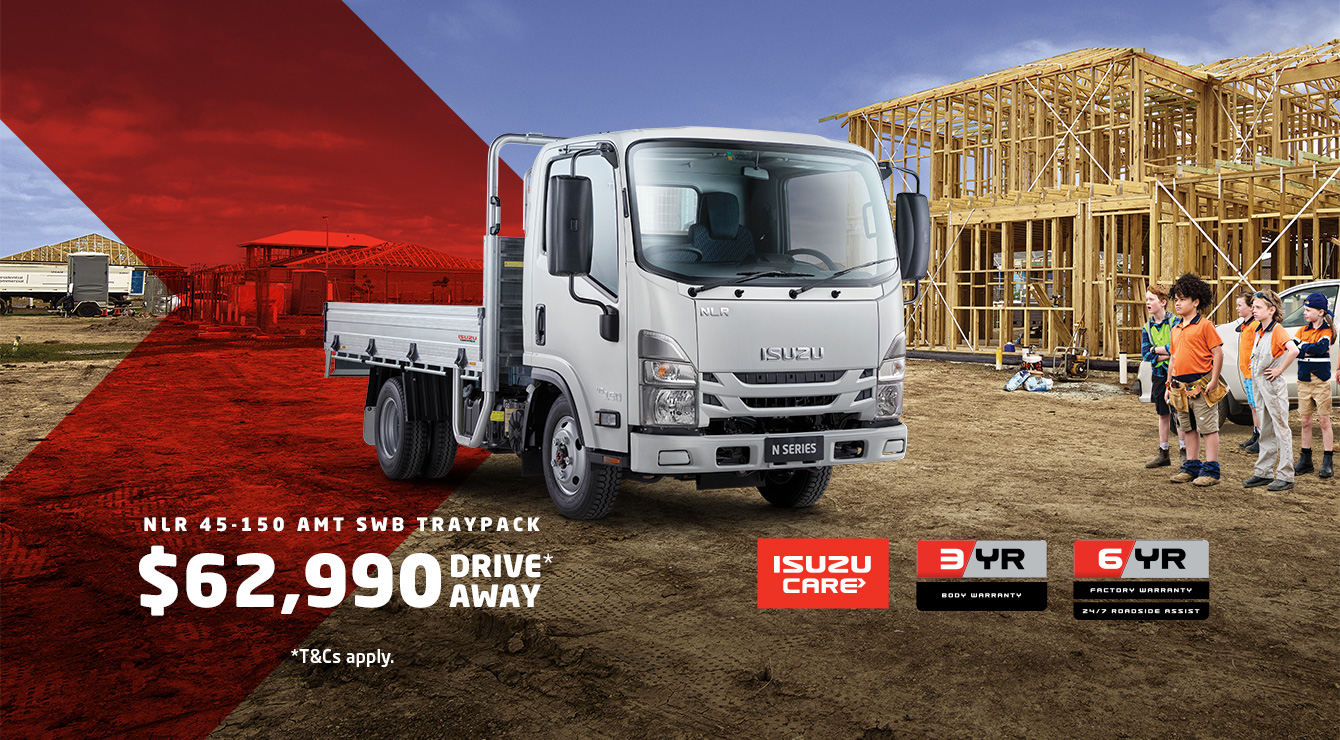
Playtime’s over, get $3,500* to spend on extras.
If you’re ready to get serious about tackling bigger jobs, grab yourself an NLR 45-150 AMT SWB Traypack from the Ready-to-Work range for $62,990 drive away*. And to prove we aren’t playing, buy any NLR Traypack before June 30 and you’ll get $3,500* to spend on genuine accessories or an Essentials service agreement.
Learn more
